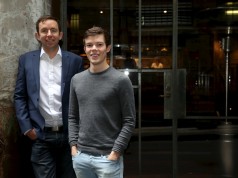Is it worth studying a degree with no guarantee of employment? Too many students are fighting for a small amount of positions; get an education, but don’t expect a job.
Universities will have the power to set fees from 2016 as interest rates on HECS loans soar. Graduates must pay back debts earlier and through a lower qualifying wage, adding more pressure to the struggle of moving out of home and pursuing a career.
Professional organisations responsible for hiring believe there’s an oversupply of graduates. The proportion of people with a bachelor degree or above has risen from 24% in 2001 to 36.8% in 2012. Despite this, universities aim to increase student numbers in the immediate future, with La Trobe stating a desired 30% jump by 2017. An increase in price and an increase in students make sense for the profit margin, but it doesn’t increase the chances of employment or the credibility of the degree. Education has become an industry driven by money.
Education Minister Christopher Pyne believes the government are making it easier than ever to learn, with plans of increasing student numbers by 80,000 each year. He encourages competition between universities, adamant it will create better courses; there isn’t a mention of the transition to the workforce, the reason we attend university in the first place.
Is quality sacrificed for quantity? Top universities with the highest fees may be avoided in favour of cheaper, lower quality options.
Treasurer Joe Hockey believes that “universities will be free to compete and improve the quality of the courses they offer,” but how about linking with employers to ensure the skills are warranted? Employers need to work with universities so students are learning the skills and acquiring the knowledge that will benefit a company, not an institution’s profit margin.
Graduate Careers Australia releases a yearly document that tracks the progress of graduates four months after the completion of a degree. From 2012 to 2013 there was a 5% drop in full-time employment and a 2% increase in unemployment, with the conclusion that employers are growing more cautious of hiring graduates.
Class sizes are growing, lectures are replacing discussions and bank accounts are a more important prerequisite than intelligence. Employers are aware of this.
The Australia Bureau of Statistics questioned people about the impact their highest qualification had on their working life six months after completion; 18% said there was no impact at all. Those who obtained a degree after 2006 were twice as likely to believe there was no impact compared to graduates prior to 1991.We are moving in the opposite direction.
Universities were once a system for the intelligent and driven, but will soon become a sanctuary for the rich.
Zoe completed a Bachelor of Business in 2012. “Holding a degree is not enough. You need networks, experience in the industry and a competitive drive to set yourself apart.” She believes universities should incorporate a full year of interning between study years, as “a high distinction in every subject means little to employers.”
Beth completed her Bachelor of Arts in 2011. It took two years to find a role that slightly related to her field. “You need to prove to a company that you’re worth the risk. A degree doesn’t prove this. Universities are not teaching the right skills.”
She raised a question: If educators understand the industry they are teaching, why don’t they teach for employment?
Allira, who works in employment services after completing a Bachelor of Science in 2011, said “I do not believe Universities are preparing students for the workforce. Many courses don’t provide placement until the final year, if they provide placement at all. I think they focus very narrowly on the types of jobs students can get after graduating, instead of informing students on the more lateral opportunities/pathways.”
Raquel studies journalism, more hopeful than confident of finding employment. La Trobe doesn’t assist in finding placements, but approximately 70% of students take it upon themselves to volunteer. She believes everyone enrolled should be given a chance in the industry prior to completion. On the budget: “It is preposterous, it will change who attends university and why, and it will prove that Australians only care for the rich to be educated. The biggest impact could be psychological. It upsets me, because when I have kids I don’t want the government to dictate their choices.”
Employers are hesitant, students are critical and statistics are damning. Only the profit bearers are positive. Are you?
Chris Sutton










Great article Chris. It’s interesting to hear the perspectives of students.
“Approximately 70% of students take it upon themselves to volunteer”. Goes to show that your destiny is in your own hands…
Comments are closed.